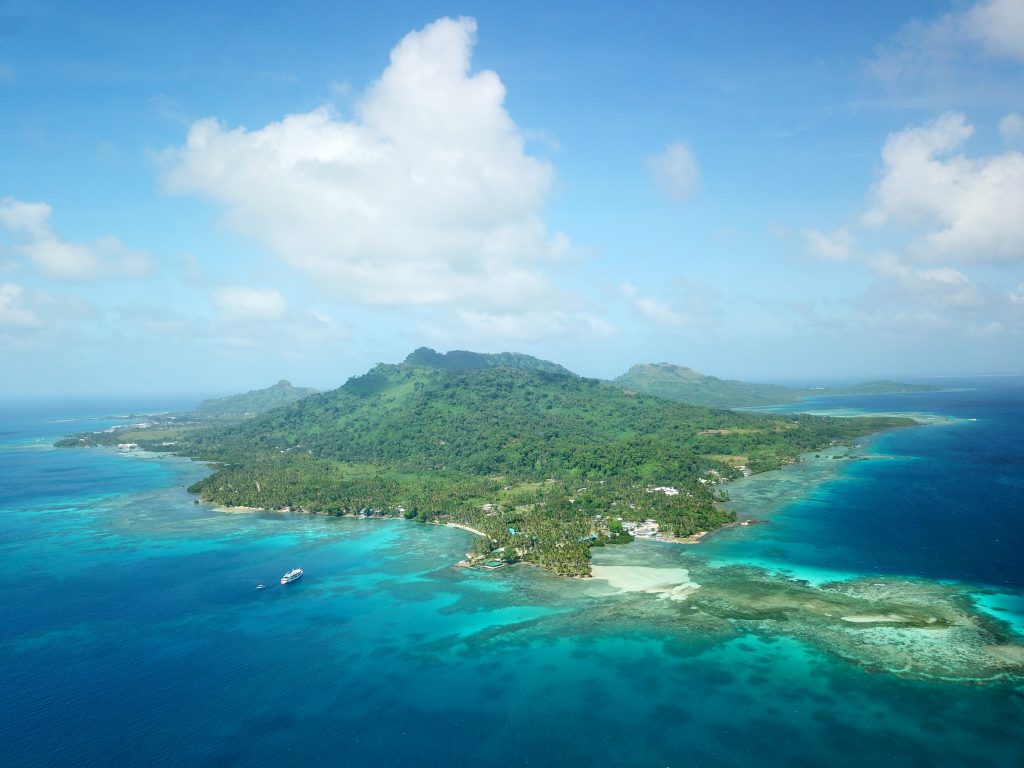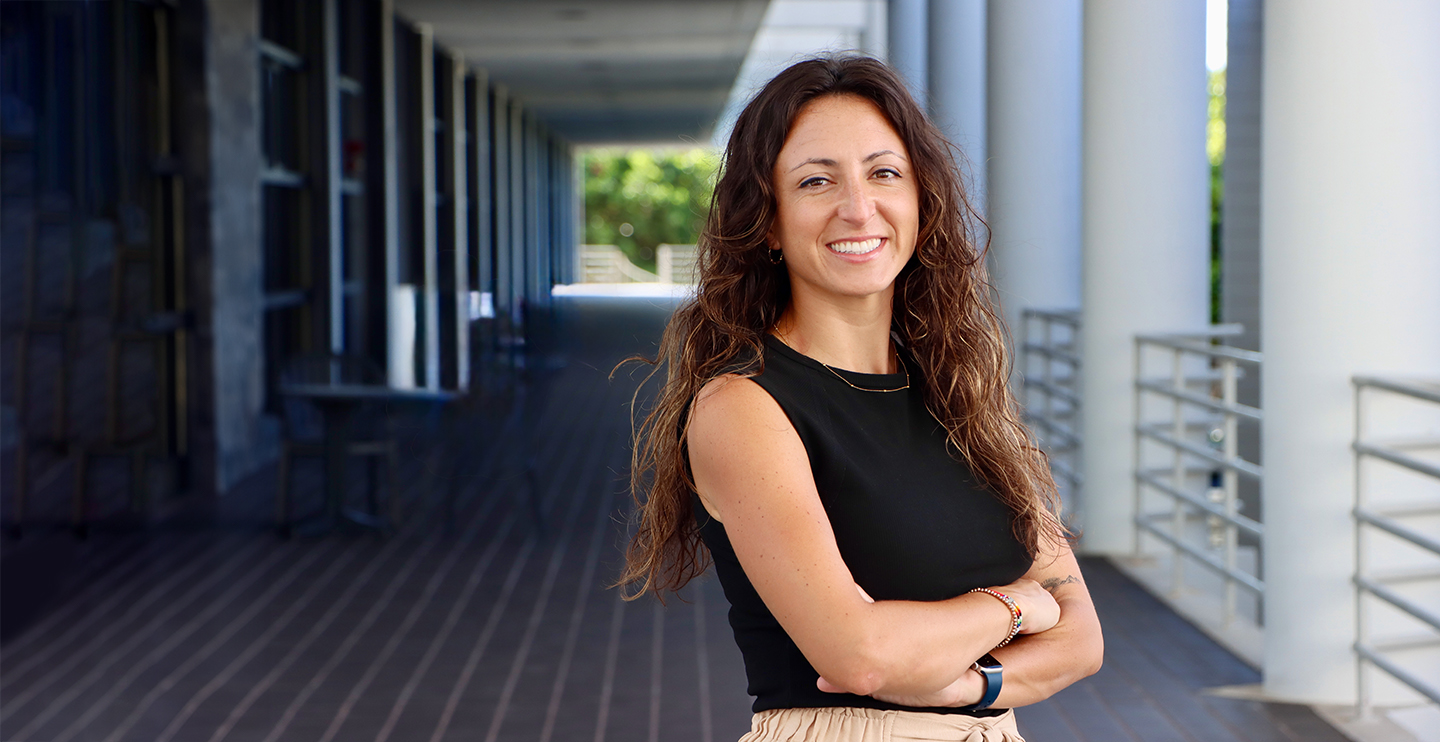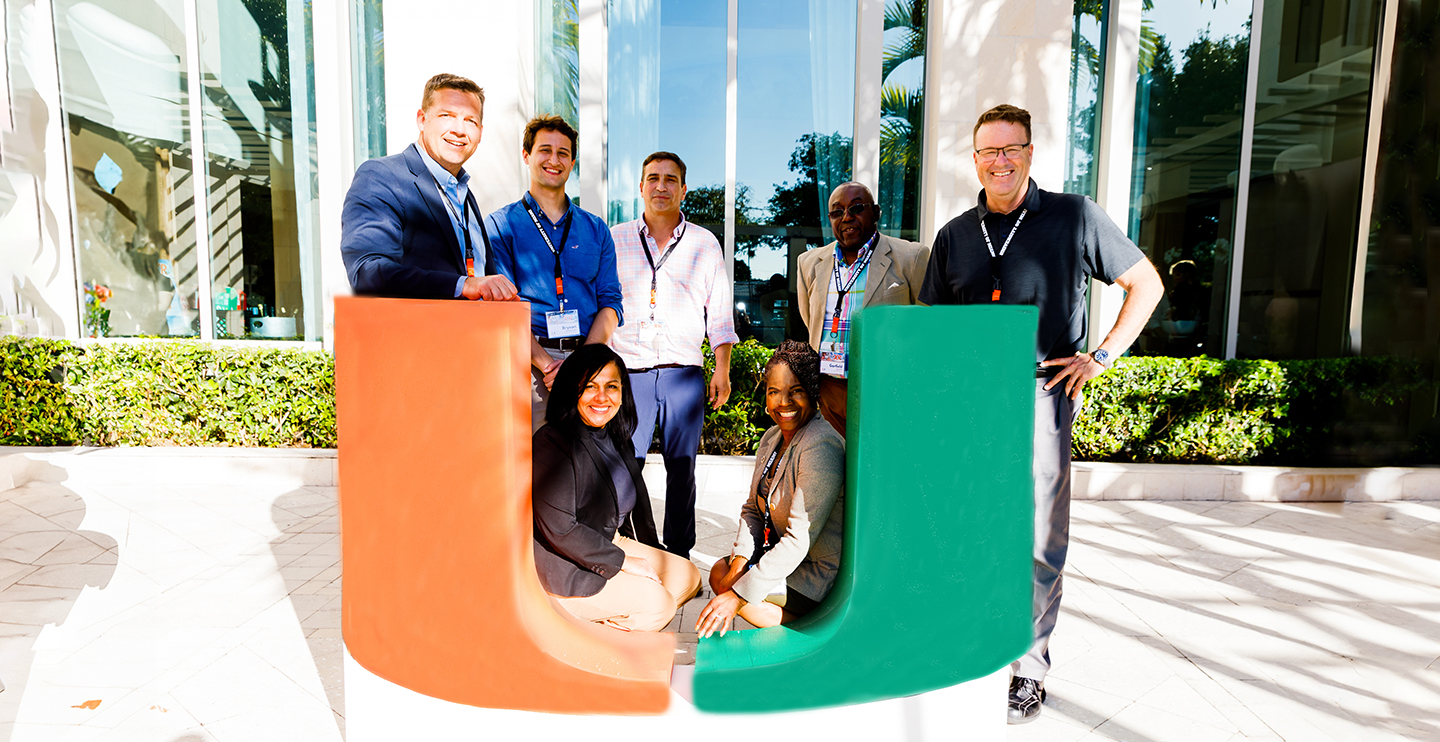In a world increasingly shaped by unpredictable
forces of nature, few scientists are as dedicated
to uncovering the hidden patterns
within the chaos as Marybeth Arcodia.
In a world increasingly shaped by unpredictable forces of nature, few scientists are as dedicated to uncovering the hidden patterns within the chaos as Marybeth Arcodia. She joins the University of Miami as an assistant professor, jointly appointed by the Frost Institute for Data Science and Computing (IDSC) and the Rosenstiel School of Marine, Atmospheric, and Earth Science, Department of Atmospheric Sciences.
Arcodia’s work is helping to redefine how we understand and predict the Earth’s complex climate system. Her work blends advanced data science with atmospheric physics, creating innovative pathways toward more accurate weather and climate forecasting, from weeks to even decades ahead.
Her current research centers on advancing Earth system predictability using explainable artificial intelligence (XAI), a branch of machine learning that opens the “black box” of algorithms to provide human-understandable reasoning behind predictions. Her mission is simple, yet ambitious: extract useful signals from the inherent noise of the climate system, enabling society to better prepare for both extreme weather events and long-term climate risks.
Arcodia’s journey into climate science was far from conventional. She began her academic career at Georgetown University, where she pursued a degree in theoretical mathematics. “I always enjoyed math,” she reflected, “but at the time, I wasn’t quite sure what I wanted to do with it.” Along with her interest in numbers, she was also captivated by space and astronomy, contemplating a future in astrophysics or aerospace science.
After graduation, she embarked on a transformative volunteer experience, teaching second grade on a remote island in Micronesia. Life on the island was serene—until it wasn’t. “We were hit by a Category 1 typhoon and there had been no warning. That moment was a wake-up call,” she said. Witnessing the impacts of severe weather without any advance notice changed the trajectory of her life, igniting a new passion for understanding extreme weather and the systems that drive it. This experience ultimately led her to the UM’s Rosenstiel School, where she earned her Ph.D. in Atmospheric Science in 2021.

Weno Island, Federated States of Micronesia
“We are so pleased to welcome Marybeth Arcodia back to UM as an assistant professor,” said Dr. Ben Kirtman, Academic Dean for the Rosenstiel School. “After earning her Ph.D. here with us, she has gone on to make great strides in her research and returns with so much to offer our students. Her tenacity, creativity, and drive to use her work as a force to help others and improve lives are all qualities that really resonate with the up and coming generation of scientists.”
At the core of Arcodia’s research is an intriguing paradox: the climate system is both chaotic and—under the right circumstances—predictable.
“People often use ‘chaotic’ casually to mean messy or disordered, but in climate science, chaos has a very specific meaning,” she explained. “It refers to how small errors or uncertainties in forecasting can grow over time, making long-term predictions difficult.” Instead of viewing chaos as an obstacle, Arcodia sees it as a scientific opportunity. “What are the elements we can predict? How do different components of the Earth system interact to form signals we can extract from the noise?”
Her work focuses on identifying these signals, like patterns of ocean temperatures, pressure systems and atmospheric waves, that can enhance forecast accuracy from sub seasonal, or weeks ahead, to decadal, more than 10 years down the line.
A major component of Arcodia’s work involves neural networks and machine learning, particularly XAI. “Neural networks are at the core of what I do,” she said. Unlike many data scientists who prioritize model accuracy alone, Arcodia would rather see transparency and interpretability. “As a climate scientist, I need to understand why a prediction was made, not just that it was.” This approach has led her to a powerful concept: forecasts of opportunity. These are windows of time when the climate system naturally aligns in a way that enhances prediction skill.
“We’ll never make perfect predictions 100 percent of the time,” Arcodia explained. “There are moments when the atmosphere and ocean enter a particular state, for example, sea surface temperatures in the Indian or Pacific Oceans, that make downstream impacts more predictable. That’s a forecast of opportunity.” One example her research has shown is that tropical patterns can have cascading effects across continents. “Atmospheric waves generated in the tropics can travel thousands of kilometers and influence rainfall in the United States weeks later.”
To illustrate how atmospheric signals work, Arcodia borrows an analogy from everyday life: noise-canceling headphones. “These work by sending out sound waves that interfere with external noise. In the climate system, we have something similar, constructive and destructive interference between atmospheric waves.”
When multiple climate signals align constructively, they can amplify extreme weather events, leading to significant rainfall, flooding, or high sea-level anomalies. Conversely, when they cancel each other out destructively, systems may weaken or shift, potentially averting disaster or causing unexpected droughts. Understanding these interactions helps researchers like Arcodia fine-tune climate predictions and offer more nuanced, location-specific guidance.
In technical circles, Arcodia speaks of “seamless prediction across timescales,” a concept she’d like to take the opportunity to demystify. “It simply means we should view the climate system as a whole—there’s no magical shift that happens at two weeks or three months or 10 years. These timescales are just analytical boxes we use.”
Her work aims to bridge these gaps by developing models that are robust across multiple forecasting windows, helping decision-makers prepare for what’s coming next month, next year, and beyond.
“Climate challenges demand diverse perspectives
from everyone from oceanographers to data scientists
to social scientists—and everyone has a role to play.”
At the heart of Arcodia’s research is a deep commitment to translating science into action. Improved climate predictability has tangible benefits: earlier warnings, better infrastructure planning, and more resilient communities. “It’s not just about scientific insight,” she said. “It’s about working with emergency managers, municipal leaders and even farmers to make better decisions based on forecast confidence.” However, for this to work, communication is key.
Arcodia has already learned valuable lessons along the way. “I was surprised by just how crucial communication is. Publishing papers is important, but if your research doesn’t reach the right people, or isn’t explained clearly, it won’t have the impact it should.”
She also has some words of advice for aspiring scientists hoping to combine data science with climate research “Be a scientist first,” Arcodia said. With machine learning tools growing more powerful by the day, it’s tempting to jump straight into technical complexity. Arcodia emphasizes the importance of curiosity, creativity and grounding your work in real-world questions.
She advises students to “Always ask yourself: Why am I asking this question? What impact will the answer have? How does it affect people and places around the world?”
Looking ahead, Arcodia is excited about the potential for interdisciplinary collaboration that comes with joining IDSC. “It’s an incredible community of researchers from across different fields and I’m thrilled to be part of it. Climate challenges demand diverse perspectives from everyone from oceanographers to data scientists to social scientists—and everyone has a role to play.”
Arcodia’s ultimate vision is a future where machine learning doesn’t just enhance predictions but builds resilience, fosters equity and drives sustainable action. Whether it’s designing better coastal defenses or shaping climate policy, she is working to ensure that science is not just accurate, but impactful.
Arcodia represents a new generation of climate scientists who are multidisciplinary, data-driven and socially engaged. With her unique blend of theoretical rigor, technological expertise, and human-centered motivation, she is not only decoding the climate system’s chaos but ensuring that her insights help communities around the world navigate a more uncertain future.
by Kimberly Bobson Feldman




